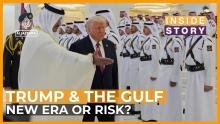How are new politicians changing the conversation ahead of Lebanon's election?
02 May 2018 ( IBTN News Bureau )Lebanon has not held a parliamentary election since June 2009. Now thousands of Lebanese aged 21 and over are considering candidates in a May 6 ballot.
Lebanon's current parliament has postponed elections and renewed its term on three occasions. Politicians said the extensions were due to security concerns amid the war in neighbouring Syria, a crippling domestic debt crisis, and disputes over electoral reform - an issue largely resolved with a new electoral law ratified in June 2017.
New political organisations and independent candidates alike are gearing up for the election under a proportional system. Civil society groups, independents and the new Sabaa party have formed an electoral alliance under the Kollona Watani (National Coalition) banner. The coalition argues that its strength is in its numbers and its diversity - 66 candidates drawn from all religious sects - and that it represents a move away from the dynastic character of traditional parties.
We will ask some of these new voices about advancing alternative political ideas, as well as their hopes for dramatically changing Lebanon's future.
(Click here for Android APP of IBTN. You can follow us on facebook and Twitter)
Share This News
About sharing
-
 16 Sep 2025
UN inquiry finds Israel’s war on Gaza to be genocide
16 Sep 2025
UN inquiry finds Israel’s war on Gaza to be genocide
UN inquiry finds Israel’s war on Gaza to be genocide
-
 16 May 2025
Has Donald Trump taken US-Gulf relations to a new era?
16 May 2025
Has Donald Trump taken US-Gulf relations to a new era?
Has Donald Trump taken US-Gulf relations to a new era?
May 16, 2...
-
 16 May 2025
What do the Gulf states gain from the US president's historic trip to the region?
16 May 2025
What do the Gulf states gain from the US president's historic trip to the region?
What do the Gulf states gain from the US president's historic trip to the regio...
-
 15 May 2025
Pakistan FM: US didn't force the ceasefire with India | Talk to Al Jazeera
15 May 2025
Pakistan FM: US didn't force the ceasefire with India | Talk to Al Jazeera
Pakistan FM: US didn't force the ceasefire with India | Talk to Al Jazeera
-
 15 May 2025
How will the lifting of US sanctions help Syrians rebuild their country?
15 May 2025
How will the lifting of US sanctions help Syrians rebuild their country?
How will the lifting of US sanctions help Syrians rebuild their country?



